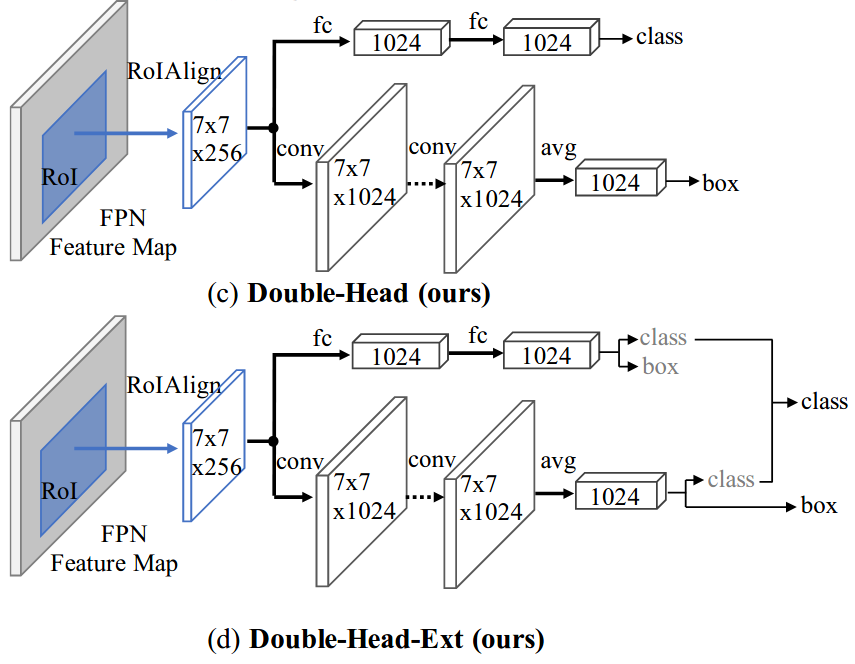Rethinking Classification and Localization for Object Detection
Two head structures (i.e. fully connected head and convolution head) have been widely used in R-CNN based detectors for classification and localization tasks. However, there is a lack of understanding of how does these two head structures work for these two tasks. To address this issue, we perform a thorough analysis and find an interesting fact that the two head structures have opposite preferences towards the two tasks. Specifically, the fully connected head (fc-head) is more suitable for the classification task, while the convolution head (conv-head) is more suitable for the localization task. Furthermore, we examine the output feature maps of both heads and find that fc-head has more spatial sensitivity than conv-head. Thus, fc-head has more capability to distinguish a complete object from part of an object, but is not robust to regress the whole object. Based upon these findings, we propose a Double-Head method, which has a fully connected head focusing on classification and a convolution head for bounding box regression. Without bells and whistles, our method gains +3.5 and +2.8 AP on MS COCO dataset from Feature Pyramid Network (FPN) baselines with ResNet-50 and ResNet-101 backbones, respectively.
| Backbone | Style | Lr schd | Mem (GB) | Inf time (fps) | box AP | Config | Download |
|---|---|---|---|---|---|---|---|
| R-50-FPN | pytorch | 1x | 6.8 | 9.5 | 40.0 | config | model | log |
@article{wu2019rethinking,
title={Rethinking Classification and Localization for Object Detection},
author={Yue Wu and Yinpeng Chen and Lu Yuan and Zicheng Liu and Lijuan Wang and Hongzhi Li and Yun Fu},
year={2019},
eprint={1904.06493},
archivePrefix={arXiv},
primaryClass={cs.CV}
}